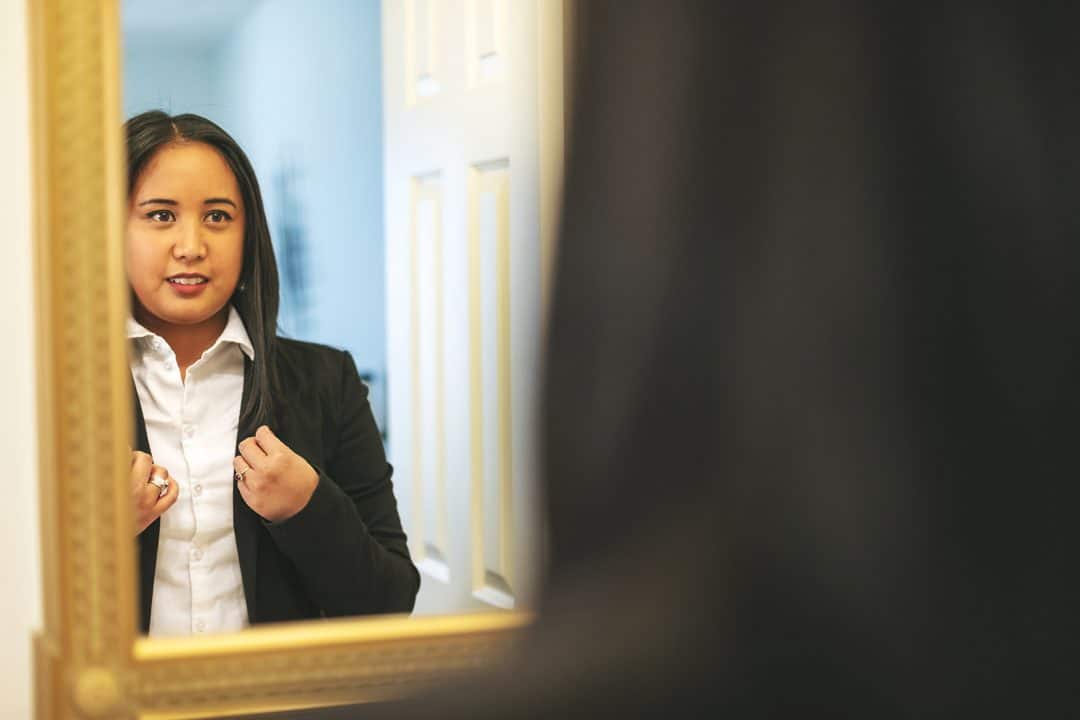Beauty before skills? How attractiveness helps in the hiring process, but confidence is king
Attractive people have a better chance at getting hired, but you can use their confidence tricks to up your game.
GAINESVILLE, Fla. – Think back to your last job interview in which you didn’t get hired. What were some of the reasons you told yourself you didn’t land the job?
Maybe you struggled during the interview or you didn’t possess the skills necessary to do the job, but did you ever think it might have been because you weren’t attractive enough?
While we’d like to believe that hiring managers aren’t ‘judging books by their covers’, decades of research have shown that people who are more attractive are more likely to get ahead in their careers. While some of this may be due to bias on the part of hiring managers, new research finds that at least some of the reason attractive people have better luck in their careers is because they have a greater sense of power and it shines through when they present themselves.

From left: Warrington Ph.D. alumnae Min-Hsuan Tu and Elisabeth Gilbert and W.A. McGriff, III Professor Joyce Bono.
“The idea is that because attractive people have had different opportunities and social experiences, like being invited to interact with others, they develop communication skills and learn how to present themselves better,” said Min-Hsuan Tu (Ph.D. ’19), Warrington Ph.D. alumna and Assistant Professor at the University of Buffalo School of Management. “For example, they are more confident and enthusiastic and have a better sense of power. That power is something they can utilize in the hiring process.”
In a Personnel Psychology study, Tu, along with Elisabeth Gilbert (Ph.D. ’19), Warrington alumna and Assistant Professor at Washington and Lee University The Williams School of Commerce, Economics, and Politics, and Joyce Bono, W.A. McGriff, III Professor at the University of Florida Warrington College of Business, sought to understand the nonverbal cues attractive people use that aid them in the hiring process by asking research participants to record their elevator pitch – a mainstay of interviews.
In their first study, the researchers found that attractive individuals were perceived as more hirable in part because of their stronger nonverbal presence.
In their second study, Tu, Gilbert and Bono find a solution for those who aren’t blessed with beauty. The researchers asked certain study participants to adopt a ‘power pose’ prior to giving their elevator pitch. In a power pose, participants stand with their feet shoulder-width apart, hands on hips, chest out and chin up.
For those participants who held the power pose before delivering their elevator pitch, they were able to adopt an effective nonverbal presence, which was associated with higher hirability ratings.
“I like this study because it offers hope for the rest of us,” Gilbert said. “It’s not a perfect solution, especially because it puts the onus on interviewees to counteract societal bias. But it is something they can do to help themselves.”
The researchers also note that beyond power posing, people who are looking to boost their feeling of power before an interview simply need to do something that makes them feel self-assured.
“If you’re a teacher and on the first day of school you need to wear a jacket and heels because that makes you feel better, then that’s what you should do,” Bono said. “Do what makes you feel the most confident.”




